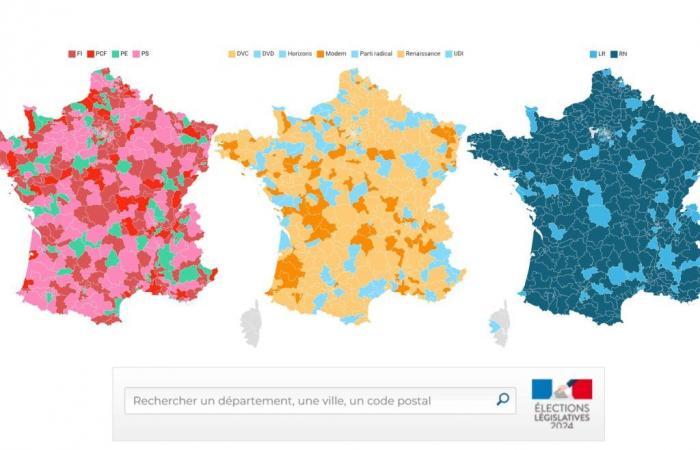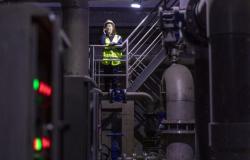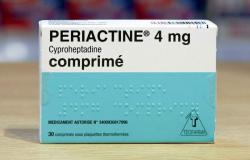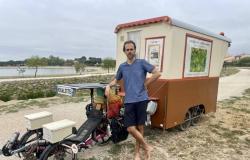It is this Sunday that we must vote for the first round of the legislative elections. Check who the candidates are for each party in your riding and find out which one is closest to your political ideas.
►Find candidates in your constituency by searching for your municipality or department:
Here we are, this Sunday at 8 p.m., the results of the first round of the early legislative elections will be known. However, it can be tricky to know who is a candidate in your constituency and which parties are represented. Indeed, due to alliances, the parties do not necessarily participate in the greatest transparency during this legislative election. These legislative elections are surrounded by a certain vagueness for the general public. This is why Linternaute.com has chosen to simplify your task by providing you with several tools to enable you to identify all the issues of the ballot and to have all the cards in hand to vote this Sunday.
The large groups (Presidential Majority, New Popular Front and RN-LR Alliance) blur the lines and do not make the task of voters easier by allowing them to clearly identify the color of each candidate for deputy in their constituency. Especially since in the 577 constituencies in the country, no less than 4,000 candidates will be in the running for the first round of the legislative elections. Enough to make you dizzy.
LFI, a Mélenchonist channel, a socialist or ecologist left? A pure Macronist or an ally with a critical eye on the head of state? National Rally or friends of Eric Ciotti? Who are the real candidates of the three main blocs in your constituency? We have analyzed the candidacies of the three major groups that should compete for the majority by reassigning a party label (LFI, PS, EELV, PCF, DVG, Renaissance, Modem, Horizons, Radical Party, DVD, LR, RN…) to each candidate.
Using the search engine above, discover all the candidates in your constituency by searching for a city, town, or department. Also click on our maps to find the candidates party by party and see a little more clearly in this high-stakes election.
A few hours after the announcement of the dissolution of the National Assembly, the Socialist Party, the Communist Party, Europe Ecologie Les Verts, La France insoumise, Place publique and the environmentalist pole came together to build an alliance. In a few days, the left-wing parties divided up the constituencies in order to present single candidates: 229 for La France insoumise, 175 for the Socialist Party-Place publique, 92 for the environmentalists and their allies, 50 for the communists. Here is the breakdown by constituency:
On the quota of La France insoumise, Adrien Quatennens, initially a candidate, finally gave up his candidacy in the North following a bronca concerning his conviction for domestic violence at the end of 2022. LFI invested in his place Aurélien Le Coq, co -national leader of Jeunes insoumis. Furthermore, the non-reinvestment of several deputies at odds with Jean-Luc Mélenchon caused controversy: Alexis Corbière (Seine-Saint-Denis), Raquel Garrido (Seine-et-Marne), Danielle Simonnet (Paris), Frédéric Mathieu ( Ille-et-Vilaine) and Hendrik Davi (Bouches-du-Rhône). On the other hand, the deputy for Somme François Ruffin is a candidate for re-election, as is the deputy for Seine-Saint-Denis Clémentine Autain. LFI has also decided to invest NPA activist Philippe Poutou in the 1st constituency of Aude.
On the socialist side, the candidacy of François Hollande caused a reaction: the former President of the Republic was invested in the 1st constituency of Corrèze, his stronghold. Another surprising candidacy: that of Emmanuel Macron’s former Minister of Health, Aurélien Rousseau, invested by Place publique in the 7th constituency of Yvelines. The latter left the government following the vote on the immigration law. On the communist side, the young Léon Deffontaines, head of the list defeated in the European elections, is a candidate in the 3rd constituency of the Somme. The boss of the PCF, Fabien Roussel, is a candidate for re-election in the North. On the EELV side, the party’s national secretary, Marine Tondelier, is running as Samira Laal’s substitute in the 11th constituency of Pas-de-Calais.
On the right, the branch of LR which followed Eric Ciotti in his rapprochement with Jordan Bardella’s party presents 62 candidates, who will therefore be supported by the RN. The National Rally, for its part, reinvests the vast majority of its outgoing deputies. Here are the details of the applications:
Among the candidates to follow, those of Marine Le Pen in Pas-de-Calais (11th), Jean-Phlippe Tanguy in the Somme (4th) or even Sébastien Chenu in the North (19th). The minority branch of LR, which followed its president Eric Ciotti, includes in the first place the deputy for the 1st constituency of Alpes-Maritimes himself, who will therefore not have an RN candidate facing him. He was followed in his alliance by another deputy from the department, Christelle d’Intorni, as well as by the president of the Young Republicans, Guilhem Carayon, who is running in Tarn. The outgoing deputy Meyer Habib, in the 8th constituency of French people established outside France, is also following the movement. Note also the candidacy of several CNews columnists under this double nomination: Guillaume Bigot, Sébastien Laye, Philippe Fontana and Charles Prats. A former Macronist MP, Typhanie Degois, also joined the alliance and is running in Savoie.
The majority of outgoing LR deputies, however, refused the alliance with the RN: the historic branch of the party announced very early on having invested “nearly 400 candidates in 93 departments and in the constituencies of French people abroad”. The general secretary of the party is naturally a candidate for re-election in Doubs, while the outgoing boss of LR deputies, Olivier Marleix, is running in the 2nd constituency of Eure-et-Loir.
Renaissance, Horizons and MoDem, the three main Macronist forces, are unsurprisingly reinvesting most of their outgoing deputies. But in accordance with the announcements made by the executive, the presidential majority is not presenting candidates against certain candidates from other camps, deemed “constructive” or in the “republican arc”. Here are the details of the candidacies:
The historic LR branch has indeed concluded some local arrangements with the presidential majority. The latter has also decided not to invest candidates against around twenty outgoing deputies, LR, socialists or from the LIOT group. Thus, no “Together for the Republic” candidate was invested against François Hollande in Corrèze. In addition, some agreements have been reached with LR at the local level: in Hauts-de-Seine, the right and the Macronists are presenting single candidates in each constituency. Similar agreements in Loire-Atlantique and Marseille for example.
Furthermore, several members and former members of the government are candidates in these legislative elections: Prime Minister Gabriel Attal is running in the 10th constituency of Hauts-de-Seine, his predecessor Elisabeth Borne in the 6th of Calvados. Gérald Darmanin candidate in the 10th of the North, Olivier Véran in the 1st of Isère, Stéphane Séjourné in the 9th of Paris. On the other hand, the former Minister of Solidarity Damien Abad, indicted for attempted rape in May, did not receive the nomination of the presidential majority to be a candidate for his re-election in Ain.
Click on a department to consult the list of constituencies and candidates near you:
Candidates in your municipality
On Sunday, June 30, the results of the first round vote will qualify all candidates who received at least 12.5% of the votes of registered voters. They will, most of the time, be two in number, but triangular (3 candidates in the second round) or even quadrangular (4 candidates in the second round) are possible. The second round will give rise to intense discussions for the transfer of votes, with either new alliances, withdrawals, or calls for a vote, which could prove decisive. The deadline for submitting applications for the second round has been set for Tuesday, July 2, at 6 p.m. This is when we will know precisely the candidates likely to enter (or return) to the National Assembly after the dissolution decided by Emmanuel Macron.
The 577 winning candidates on July 7, who became deputies, should meet for the first time on July 18 at the Palais Bourbon. By then negotiations will also have begun to find a majority in principle and support a new government with very probably a new Prime Minister at its head. Will the latter be compatible with Emmanuel Macron’s policy or will the head of state be forced into cohabitation to complete his mandate? First element of response with the results of these legislative elections.







